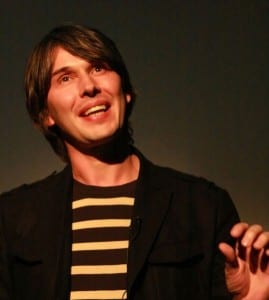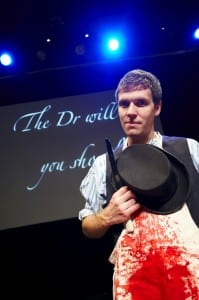Hacks and Headlines Part 2: A Press Huddle with Brian Cox
By Rupert P Cole, on 8 September 2012
I find it odd that with Sir Paul Nurse, I attended a press conference, but with Brian Cox a huddle. Why? 
I heard that one young woman at Professor Cox’s appearance in a festival highlights show let off a loud shriek of excitement. But were the hardened hacks expected to give a similar reception, nestling closely around Cox, clamouring to bathe in his celebrity aura?
Talk of auras reminds me that we were not just in the presence of a celebrity, but a celebrity physicist – a rare breed. There have been a few – Hawking, Feynman, Einstein, Faraday – but Brian Cox was the latest.
When the floor opened for questions, the dense press plasma fell into a nervous silence. Some beforehand had boasted about ignoring his science, and grilling Cox on his music career – allegedly he was only a bit-part keyboardist for D:Ream.
No such courage surfaced though. Cox, breaking the admiring hush, joked to the throngs of journalists, “you probably don’t have any questions…” (more…)
 Close
Close




